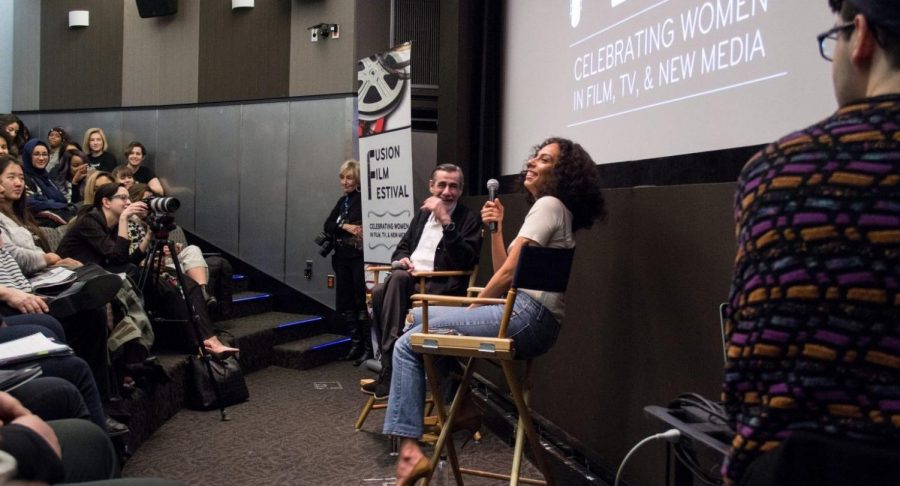NYU Film Fest Uplifts Women in Cinema
Courtesy of Fusion Film Festival
A panel discussion at the annual Fusion Film Festival.
September 17, 2018
Women of all ages who enter a movie theater hoping to see stories and lessons they can relate to often leave disappointed. Women make up half of all moviegoers but just eight percent of directors, 10 percent of writers and two percent of cinematographers while just 24 percent of protagonists in films are women. Female voices are generally neither behind nor in front of the camera.
The lack of women creates a lack of nuance in expressing artistically crucial perspectives.
The barriers between women and the film industry have remained since the days of a nascent and overtly sexist Hollywood. As a result, at recent major film festivals there has been a growing outcry from the lack of female filmmakers. At the 2018 Venice Film Festival, only 21 films in competition were directed by women and at the 2018 Cannes Film Festival, three out of 17 films in competition were directed by women.
But industry professionals and advocates alike are doing what they can to help aspiring filmmakers overcome these hurdles. Nonprofits including Women Make Movies and Women in Film and Television International advocate in the name of gender equality in cinema.
At NYU, an institution heavily involved in the film industry, many of these endeavors are crystallizing. The school’s own Fusion Film Festival, established in 2003, encourages and promotes the representation of women in film. It culminates in a three-day event in the spring showcasing women in film.
The festival’s mission of bolstering women’s voices as creators and producers motivates its selection of a diverse group of films by women of all identities.
“[The festival aims to] show what women are capable of making, and giving them a distinct outlet to prove to the industry and world around them that they are storytellers and their perspective is valid,” festival director Allison Cavanaugh told WSN.
Of course, the onus of bettering the film landscape for women cannot fall solely on creators and the industry — there is much the filmgoer can do. To Cavanaugh, the best thing a concerned onlooker can do is simply support women filmmakers by seeing — and paying — for their films.
“I think that the concept of Fusion is extremely important because we need to celebrate female filmmakers, both ones that have been in the business and ones that are trying to break into it,” explained Tisch sophomore Jordan Mailes. “I think that NYU can be overwhelming, and being in Fusion and meeting people who have similar goals to you is great.”
Tisch sophomore Mia Dixler agreed, “[It’s]a great platform for women in this industry to demonstrate their talent and what they’re capable of.”
Through the efforts of Cavanaugh, the Fusion Film Festival’s staff and advocates in the industry at large, the prospects of women in film are looking better. In a conservative industry, the grassroots work for such groups and individuals as Fusion has done much to help women who choose to pursue this art form.
A version of this article appeared in the Monday, Sept. 17 print edition. Email Hankins Fletcher at [email protected].
























































































































































